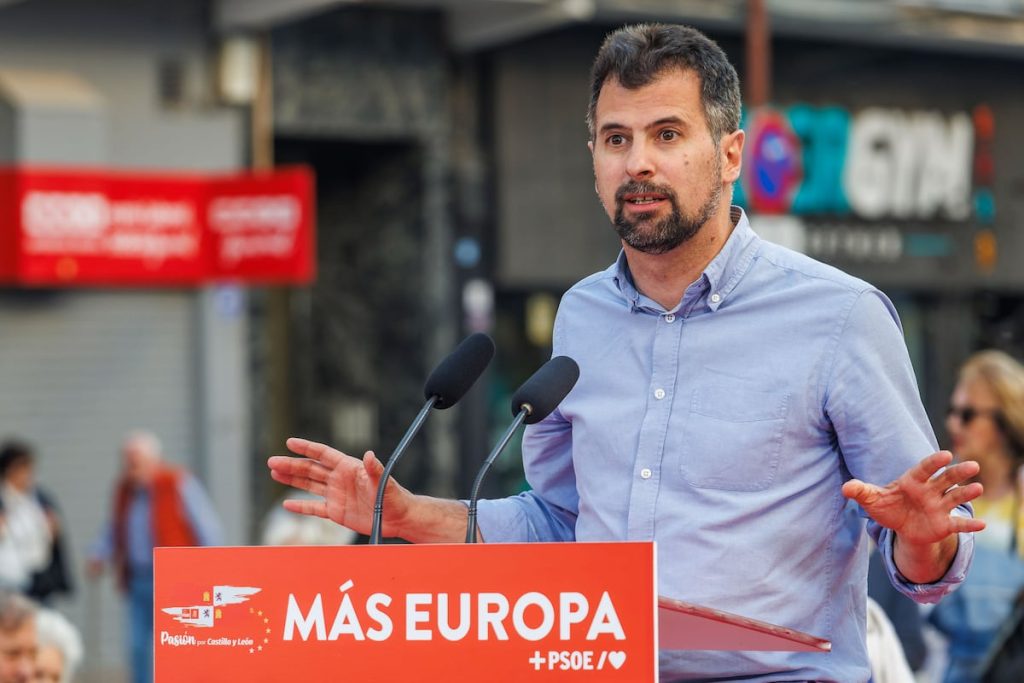The fire in the PSOE of Castilla y León continues to spread without any signs of abating, as declared Sanchez supporters turn against Ferraz in an unprecedented twist. The clash between one of the most aligned federations with Pedro Sánchez and the federal organizational area of the party, led by Santos Cerdán, has opened an unprecedented front. The background of this intense and unexpected organizational battle lies in the fact that the rapid process made it difficult for a candidate to present an alternative to the socialist baron, according to critics. Supporters of Tudanca complain about Ferraz’s intervention, which they believe is unjustified. The party’s ethics and guarantees commission annulled the process, arguing that both primaries and regional congresses should be held after the 41st Federal Congress of the socialists, scheduled from November 29 to December 1 in Seville. The commission acknowledged that the statutes were open to interpretation. The ongoing crisis complicates, if not outright prevents, the image of unity and closing ranks that the federal leadership aims to display at the Federal Congress, where Sanchez will be acclaimed for a new mandate.
The open clash between Ferraz and Tudanca also highlights the discomfort of prominent Socialist leaders. The federal executive reacted on Saturday through its spokesperson, Esther Peña, praising Tudanca’s compliance with the resolution of the ethics and guarantees commission. The crisis has elicited numerous expressions of support for Tudanca from various party members in Castilla y León. Among them, Andrea Fernández, a former member of the federal leadership, expressed her unequivocal support for Tudanca. Other long-standing Sánchez supporters, such as Ander Gil, former Senate president, also voiced their solidarity with Tudanca. Various members of the regional executive, local representatives, and party leaders in Castilla y León have shown their support for Tudanca amidst the ongoing dispute with Ferraz. The approved calendar by the regional federation of Castilla y León set the candidate presentation period from October 8 to 15, with the election dates to follow.
Ferraz responded immediately, not waiting for Tudanca to formalize his candidacy the following week, despite Tudanca’s assertion that he had complied with the statutes. In a statement, Tudanca accepted Ferraz’s decision, noting that it was made out of respect for the party, but expressing his disagreement. The resolution of the ethics and guarantees commission to annul the primaries process was based on the argument that the election of organs is a process cascading downward from the federal level, as defined by the Federal Congress. The commission’s decision sided with Ferraz’s stance, ruling that all lower-level congresses should be held after the Federal Congress, starting from December 2, 2024. This decision received backlash from supporters of Tudanca, who viewed it as an unjust suppression of the party’s democratic processes.
The ongoing conflict within the PSOE of Castilla y León underscores the broader tensions within the party and the challenges of maintaining unity. The unprecedented showdown between Ferraz and Tudanca has exposed divisions and discomfort among Socialist leaders. While some members of the federal executive have defended Ferraz’s decision, others have shown solidarity with Tudanca, emphasizing his commitment to the party and its values. The dispute over the timing of primaries and regional congresses reflects a larger struggle for control and influence within the party, with implications for future leadership and direction. As the crisis unfolds, party members in Castilla y León remain divided, with some rallying behind Tudanca and others questioning the intervention from Ferraz.
The aftermath of the dispute in the PSOE of Castilla y León is likely to have lasting implications for the party’s internal dynamics and future decision-making processes. The clash between Sanchez supporters and Ferraz loyalists has exposed deep-rooted tensions and power struggles within the party, which may reverberate beyond the regional level. The resolution of the conflict will require careful navigation and dialogue among all parties involved to ensure a return to party cohesion and unity. The broader implications of the crisis within the PSOE of Castilla y León will likely be felt in the upcoming Federal Congress and beyond, as the party grapples with an internal rift that threatens to undermine its broader political agenda.


